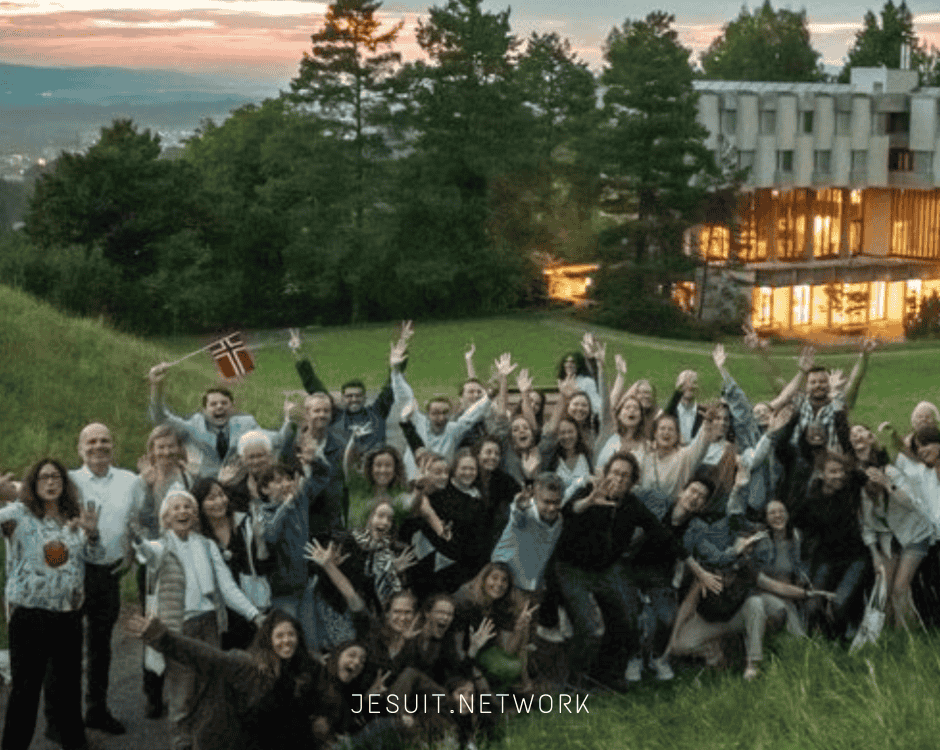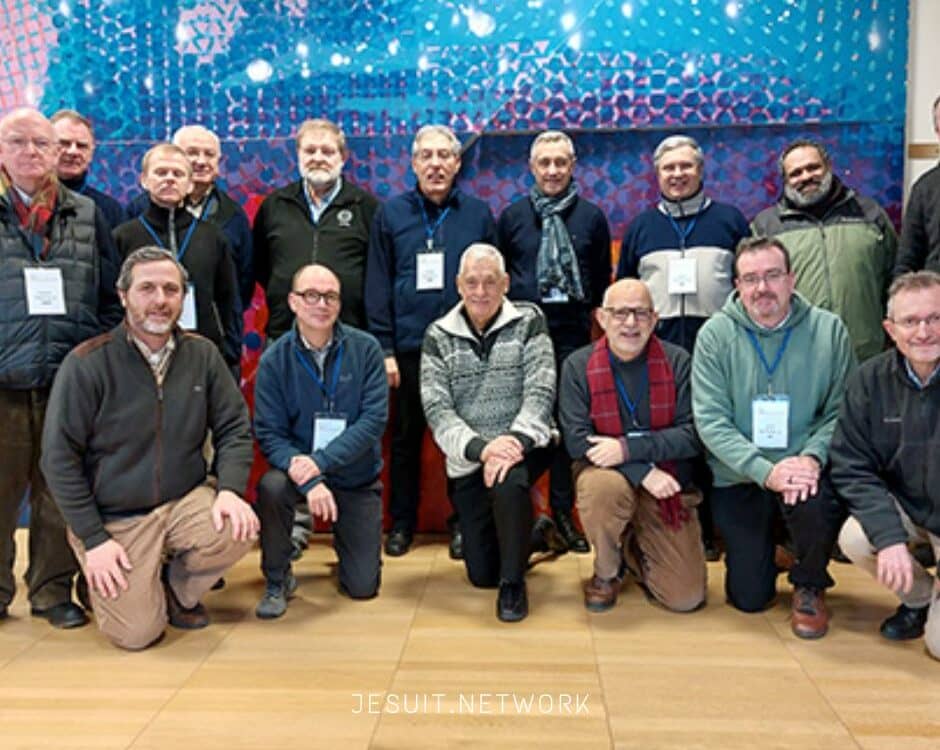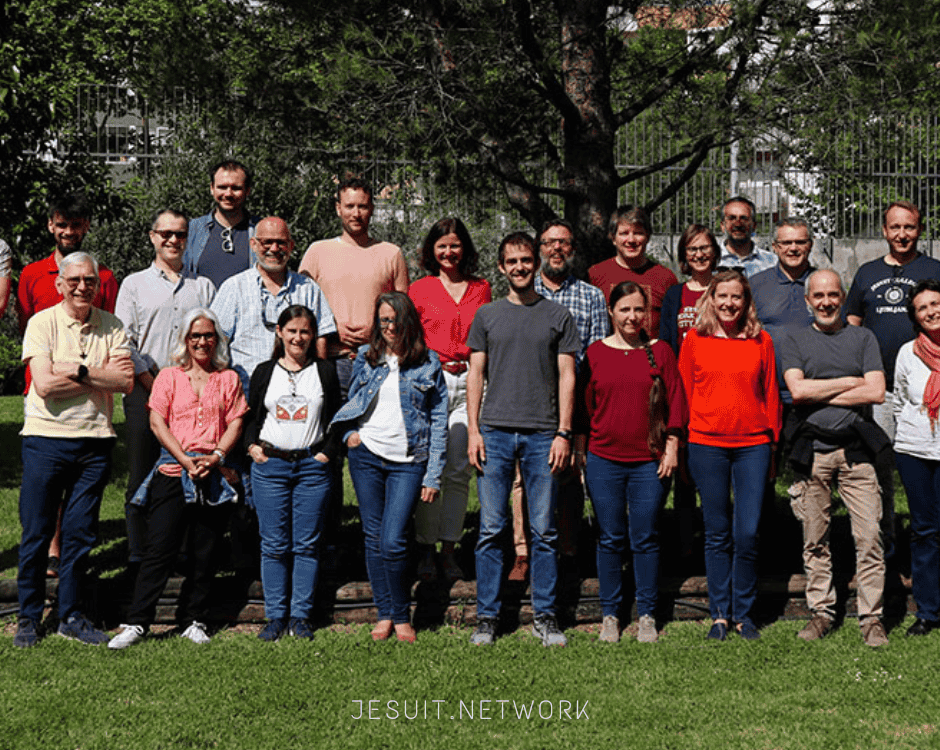This website uses cookies so that we can provide you with the best user experience possible. Cookie information is stored in your browser and performs functions such as recognising you when you return to our website and helping our team to understand which sections of the website you find most interesting and useful.
First Taizé meeting in Homs
750 young people gathered at a Taizé meeting held for the first time in the Syrian city of Homs. They sought answers on how to live in the difficult times in which the country finds itself
From April 28 to May 1, a Taizé meeting took place for the first time in Homs, Syria. It brought together 750 young Christian Syrians aged 18 to 25 from all over Syria, from 8 different churches. During four days, 6 prayers together took place, 37 workshops, more than 100 host families for young people who come from afar – everything went well!
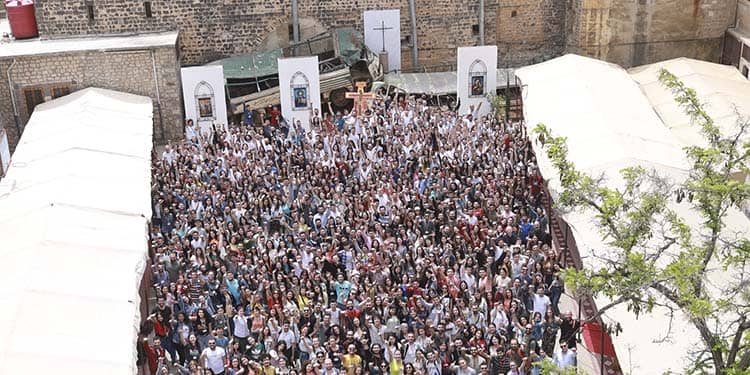
The objective was to face the real questions of young people: how to live in these bitter times and remain hopeful and kind to each other? 95% of young people can think only of leaving Syria – the wounds of the war have not healed, the economy continues to sink, university training is not up to the task…
The decoration symbolized all of this: two abandoned buses in the schoolyard were kept as a backdrop, because this is how Homs is now – in ruins. Between the two buses, a wrought iron cross made from the remains of windows from collapsed houses. In front of the buses, three large white stones reminded us that life goes beyond ruins. Icons were placed, copies of the main icons of the Greek Orthodox, Greek Catholic, Syriac Orthodox and Syriac Catholic churches in the old city of Homs.
Church leaders blessed the water together during the Saturday evening prayer and sprinkled the young people together. During daily sharing, group discussions focused on how to live now: how can we live with the heavy weight of the past, when we don’t know what tomorrow will be? When we don’t even know if there will be Christians left in Syria in 50 years? We cannot ignore the anguish of the future, nor the weight of the past, but how can we put them in their right place so that life remains possible, here, today?
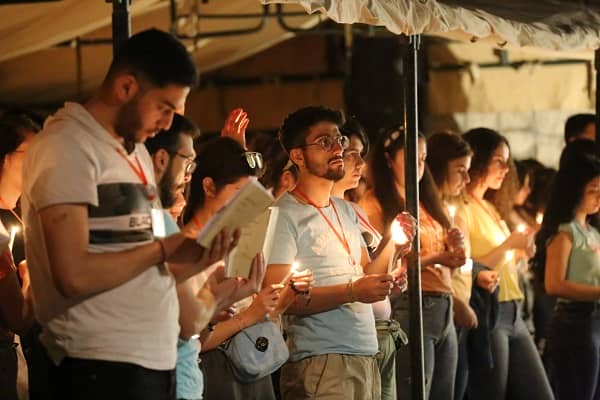
No one has the answer to this question but, during those four days, we have made this crazy bet that praying, sharing and allowing ourselves to be joyful, even to party, can help young adults find their ways to answer it.
This article was originally published on the JCEP website.


